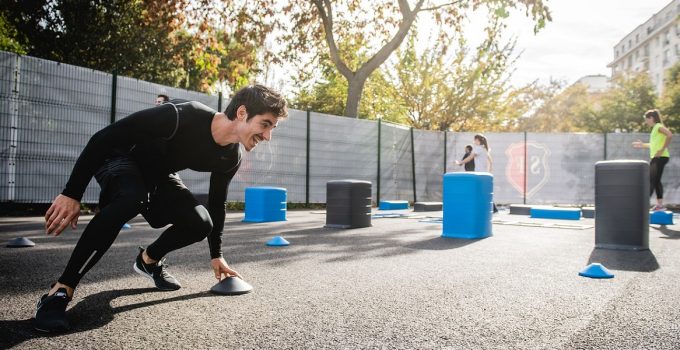Magnesium Supplements for Athletes and Exercising
When there is a potential dietary deficiency then supplementing with magnesium for sports may be required for some athletes and sports people. About 25 grams of the magnesium mineral is normally present in the human body. Around 60 percent of this can be found in the bones while the remainder is within the body’s cellular structure. It is a required mineral, supporting the production of energy as well as being important for the maintenance of healthy cells. It also enables the body’s muscles to recover quickly from stress and fatigue so that the muscles can contract and relax properly.
The Role of Magnesium for Sports
Magnesium is especially required by athletes as their daily activities involve strength training and muscle development. They need to have a high endurance to carry out strenuous tasks; and being able to recover from such vigorous activities is critical for optimum training and performance. For this reason, there should always be a sufficient supply of magnesium. If there is a deficiency in magnesium that cannot be addressed through good nutrition and diet then it may necessary to consider taking magnesium supplements.
The Importance of Magnesium Supplements
As one sweats and urinates often (assuming sufficient hydration) when engaged in a physical activity, the magnesium level inside the body can get depleted. This can prove to be dangerous, especially for athletes, as it can cause dizziness, high blood pressure and nausea, among others. Even low level deficiencies are believe to have an impact on performance and ability to recover from heavy training. Daily recommended dosages may be high for athletes and sports enthusiasts.
There are 2 main types of magnesium supplements that are usually considered but these have advantages and disadvantages. Magnesium Oxide supplements contain high levels but it is not easily absorbed by the body. Magnesium Citrate, on the other hand, often has a low dosage yet is more absorbed. A good sports nutritionist would be able to suggest what form would be the most suitable for you.
Factors that may inhibit magnesium absorption
If you want to maximize the efficiency of your magnesium intake, then you should be aware of factors that can reduce its absorption. Too much protein in the diet is one of the causes of inefficient absorption of this mineral (but also too little protein in the system can have a similar effect). Alcohol also can interfere with the mechanism by which the body absorbs magnesium so (as is always recommended on health related websites) consider reducing your intake of alcohol if you are concerned about your health and sporting prowess.
Magnesium Deficiency
When the body’s magnesium level falls beyond the minimum requirement, a person may feel tired and lethargic.
Engaging in strenuous physical activities like sports and exercise can also deplete the body of said mineral as it is excreted in the form of sweat. Many who are particularly conscious of their nutritional intake look to sports drinks to assist providing their daily requirement of necessary minerals. But please be aware that only a few sports drinks contain magnesium and always check the label before purchasing if this is important to you. For example, Endura Rehydration Performance Fuel may be a good candidate as it contains all the major minerals including magnesium for sports performance.
Benefits of Supplementing with Magnesium for Sports Performance
It is only natural for a person to sweat a lot when engaged in sports and other similar activities. However, one needs to maintain the proper levels of magnesium in the system in order to carry out this active lifestyle without posing any risks to one’s health. In addition, there is some research evidence that indicates that taking magnesium may improve performance, particularly for those who are competing in endurance type events.
Aside from eating food sources that are rich in magnesium, sports-minded people can also take in dietary supplements to ensure adequate supply. Adding magnesium supplements to your everyday nutritional program will ensure that your body is supplied with sufficient to perform vigorous activities. The mineral is also needed by the body to recuperate from fatigue and exhaustion properly, so that muscle cramps and other similar problems can be avoided.
Check with your Doctor, Sports Physician or Dietitian
Do consult a doctor or other suitable health care professional before taking in any type of dietary supplements. As the magnesium requirement differs from person to person, it can be unsafe to self-medicate. They will be able to recommended the right dosage for you and advise you on possible side effects.
And you may be advised to take in other vitamins and minerals depending on your overall health condition.
It is almost impossible to overdose in magnesium if this is taken from natural food sources (fruits, vegetables, nuts, spices and cereals). Aside from the limited magnesium content of said food groups, any excess amount of the mineral will be filtered out by the kidneys so that these can be released through the urine. Overdose from magnesium only ever becomes an issue if someone takes too many oral supplements. If too much is taken then the excess may not be efficiently filtered by the system. This is especially true for those people who have kidney problems.

